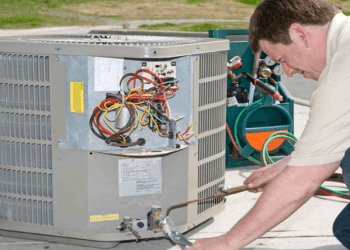Sleep apnea is a serious condition that can significantly impact an individual’s quality of life and overall health. Among the various treatment options available, tonsillectomy has emerged as an effective intervention, particularly for children and adults suffering from obstructive sleep apnea (OSA) due to enlarged tonsils.
In Turkey, the growing prevalence of sleep apnea has led to increased interest in surgical solutions like tonsillectomy in turkey and UPPP (uvulopalatopharyngoplasty) surgery. This article explores the role of tonsillectomy in treating sleep apnea, focusing on insights from Turkey’s healthcare landscape.
Understanding Sleep Apnea
Sleep apnea is characterized by repeated interruptions in breathing during sleep, leading to poor sleep quality and various health complications. The two primary types of sleep apnea are:
Obstructive Sleep Apnea (OSA)
OSA is the most common form and occurs when the muscles in the throat relax excessively during sleep, causing a blockage of the airway. Enlarged tonsils are a common contributing factor to OSA, especially in children.
Central Sleep Apnea (CSA)
CSA is less common and occurs when the brain fails to send the appropriate signals to the muscles that control breathing. This type of sleep apnea is usually not related to tonsil size.
The symptoms of sleep apnea can include loud snoring, gasping for air during sleep, excessive daytime sleepiness, irritability, and difficulty concentrating. If left untreated, sleep apnea can lead to serious health problems, including cardiovascular issues, diabetes, and impaired cognitive function.
The Connection Between Tonsillectomy and Sleep Apnea
Tonsillectomy is a surgical procedure to remove the tonsils, which can help alleviate symptoms of obstructive sleep apnea in certain patients, particularly children. Here’s how tonsillectomy can play a role in treating sleep apnea:
Enlarged Tonsils as a Cause of OSA
Enlarged tonsils can obstruct the airway, especially during sleep. This blockage can lead to episodes of apnea, where breathing temporarily stops. By removing the tonsils, the airway can be cleared, allowing for unobstructed airflow during sleep.
Improved Sleep Quality
Numerous studies have shown that children who undergo tonsillectomy for sleep apnea experience significant improvements in sleep quality. Parents often report reduced snoring, fewer apnea episodes, and better overall sleep patterns in their children after the procedure.
Long-Term Benefits
In addition to immediate improvements in sleep quality, tonsillectomy can lead to long-term benefits, including better growth and development in children, reduced risk of complications associated with sleep apnea, and improved cognitive function due to better sleep.
Tonsillectomy in Turkey: A Growing Solution
Turkey has become a leading destination for medical tourism, particularly in the field of ENT (ear, nose, and throat) treatments. The popularity of tonsillectomy in Turkey can be attributed to several factors:
- Advanced Medical Facilities
Turkey is home to numerous accredited hospitals and clinics that offer state-of-the-art medical care. Many facilities are equipped with the latest technology for performing tonsillectomy and other surgical procedures.
- Expertise of Healthcare Professionals
Turkey boasts a pool of skilled ENT specialists who have undergone extensive training and have experience performing tonsillectomies. Many surgeons in Turkey are trained in advanced techniques that can minimize recovery time and improve outcomes.
- Affordable Treatment Options
The cost of medical treatment in Turkey is significantly lower than in many Western countries, making it an attractive option for families seeking high-quality care at an affordable price. The affordability of tonsillectomy allows more patients to access this vital procedure.
- Comprehensive Care Packages
Many hospitals in Turkey offer all-inclusive care packages for medical tourists, covering pre-operative consultations, the surgery, post-operative care, and accommodations for the patient and accompanying family members.
The Tonsillectomy Procedure
The tonsillectomy procedure is typically straightforward but requires careful planning and preparation. Here’s an overview of what to expect during the process:
- Initial Consultation
Before the surgery, patients will have a thorough consultation with an ENT specialist to assess their condition and determine if tonsillectomy is the appropriate treatment option. The doctor will review the patient’s medical history, conduct a physical examination, and may order sleep studies to confirm the diagnosis of sleep apnea.
- Pre-Operative Instructions
Once surgery is scheduled, patients will receive specific instructions regarding pre-operative preparations. This may include dietary restrictions, medications to avoid, and guidelines for the day of the procedure.
- Anesthesia
Tonsillectomy is usually performed under general anesthesia, ensuring that the patient is comfortable and pain-free throughout the procedure.
- The Surgery
The procedure typically lasts 30 to 45 minutes. The surgeon will remove the tonsils through the mouth using specialized instruments. Various techniques may be employed, including traditional scalpel methods or newer methods like coblation, which uses radiofrequency energy to remove tissue.
- Recovery Room
After the surgery, patients will be moved to a recovery room, where medical staff will monitor their vital signs as they wake up from anesthesia. The recovery period can vary depending on individual factors, but patients are generally observed for a few hours before being discharged.
Post-Operative Care and Recovery
Recovery after tonsillectomy is a crucial phase for ensuring optimal healing and outcomes. Here’s what to expect during the recovery period:
- Pain Management
Post-operative pain is common after tonsillectomy. Patients may experience throat pain, ear pain, and discomfort in the first few days following the procedure. Doctors typically prescribe pain medication to help manage this discomfort. It’s essential to follow the doctor’s instructions regarding medication dosages and schedules.
- Dietary Recommendations
Diet will need to be adjusted during the recovery phase. Here are some dietary tips for patients recovering from tonsillectomy:
Soft Foods: Consume soft, easy-to-swallow foods such as mashed potatoes, yogurt, smoothies, and ice cream. Avoid hard, crunchy, or spicy foods that may irritate the throat.
Hydration: It’s crucial to stay hydrated by drinking plenty of fluids. Water, herbal teas, and non-acidic juices are excellent options.
- Activity Restrictions
Patients should limit physical activities for at least two weeks post-surgery. Avoiding strenuous exercise, running, or playing rough sports is essential to prevent bleeding and promote healing.
- Signs of Complications
While most recoveries are straightforward, it’s essential to monitor for any signs of complications. Patients should contact their healthcare provider if they experience:
Excessive Bleeding: Some bleeding is expected, but persistent or excessive bleeding should be addressed immediately.
Fever: A mild fever is common, but a high or prolonged fever may indicate an infection.
Difficulty Breathing: Any difficulty in breathing should prompt immediate medical attention.
Alternative Treatments: UPPP Surgery in Turkey
In some cases, children and adults with severe sleep apnea may require additional procedures, such as UPPP surgery. This surgery involves the removal of excess tissue from the throat, including the tonsils and parts of the uvula and soft palate. UPPP surgery aims to widen the airway to improve airflow during sleep.
Understanding UPPP Surgery
Indications: UPPP is typically recommended for patients with moderate to severe obstructive sleep apnea, particularly when tonsillectomy alone may not provide sufficient relief.
Procedure Details: uppp surgery in turkey is performed under general anesthesia. The surgeon will remove the tonsils, uvula, and part of the soft palate to create a more open airway.
Post-Operative Care
The recovery process for UPPP surgery is similar to that of tonsillectomy. Patients will need to manage pain, adjust their diet, and limit physical activities during the recovery phase.
Success Rates
UPPP surgery has demonstrated favorable success rates in improving sleep quality and reducing apnea events. However, it is essential for patients to have a thorough evaluation by an ENT specialist to determine the most appropriate treatment approach.
The Importance of Follow-Up Care
Post-operative follow-up appointments are crucial for monitoring recovery and ensuring that the surgical site heals correctly. During these appointments, the ENT specialist will evaluate:
Healing Progress: Assessing how well the surgical site is healing and if any complications have arisen.
Symptom Resolution: Discussing any lingering symptoms or concerns and evaluating improvements in sleep apnea symptoms.
Long-Term Management: Addressing any further treatments or lifestyle changes needed to prevent future issues related to sleep apnea.
Tonsillectomy is a vital surgical intervention for treating obstructive sleep apnea, especially in children with enlarged tonsils. With the rising prevalence of sleep apnea, the role of tonsillectomy in Turkey has become increasingly important in improving patients’ quality of life.
Turkey offers advanced medical facilities, skilled healthcare professionals, and cost-effective treatment options, making it an ideal destination for families seeking tonsillectomy and other related surgeries. As parents consider surgical options for their children, understanding the benefits and potential outcomes of tonsillectomy can provide peace of mind and lead to healthier futures for their loved ones.
If your child is experiencing symptoms of sleep apnea, consult with a qualified ENT specialist to explore the potential benefits of tonsillectomy and determine the best course of action for your child’s health and well-being. The journey to better sleep and improved health begins with informed decisions and access to high-quality medical care.








